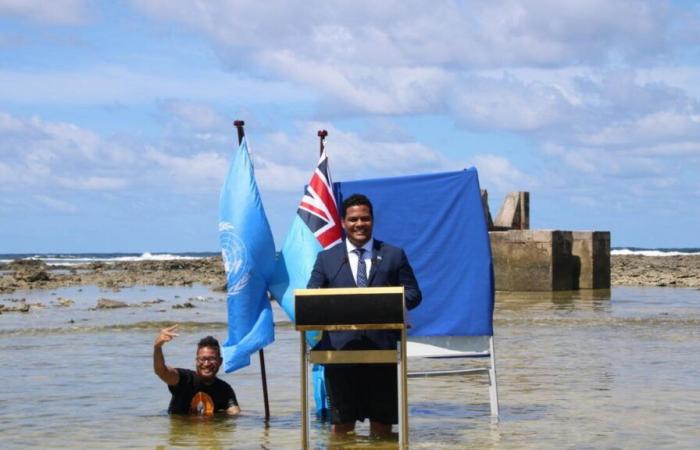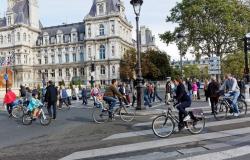While the COP29 in Baku ended in pain yesterday, Sunday November 24, the South German newspaper takes us to Tuvalu, this Pacific micro-state, already condemned to disappear… Indeed, points out the German daily, in this paradise archipelago, “ sea levels have risen by almost 15 centimeters over the past 30 years. It is expected to increase by another 20 centimeters by 2050 and by another 50 to 100 centimeters by the end of the century. This is too much for Tuvalu. The country consists of six atolls and three islands widely scattered in the ocean. Together they have an area of only 26 square kilometers. There are no mountains. If sea levels continue to rise, much of the country will be submerged. »
What to do in the face of the inevitable? An agreement has already been reached with Australia, notes the South German newspaper. An agreement for the immigration of 280 citizens of Tuvalu every year (out of a total population of just over 11,000 inhabitants). And then there is this project for a digital nation, a virtual state, to protect the countries’ international rights, particularly in terms of fishing on the 200 nautical miles located around the coasts of the archipelago.
The responsibility of States
So the case of Tuvalu is extreme of course. But climate change is now affecting the entire world. And the COPs follow one another and are similar…
« Climate summits expose the world’s wounds and struggle to heal them », summarizes The evening in Brussels. “ The climate summit in Baku ended in tension. Increasingly, the COPs reflect global divides over fossil fuels, climate justice and North-South cooperation. In short, the shaky march of the world. »
The fact remains, notes the Belgian daily, that“we have not yet presented an alternative to these technical discussions intertwined with major political and social issues. The road will continue. After finance, the other side of the coin – reducing emissions by 2035 – will be at the center of the Belém summit next year. But beyond the painful nature of the negotiations, the traps, the selfishness that is shamelessly expressed, not everything will come out of the COP, still estimates The evening. They speak about the world and to the world, but it is the States that respond. Those who produce, those who use. Without a political, economic and societal shift, aimed at reducing consumption, improving efficiency and decarbonizing the rest, without reinventing solidarity, the principles will remain a dead letter. »
Three good news…
All the same, “ high hearts », exclaims Liberation in Paris which points “ three good news to console yourself with a bitter-tasting agreement. » Three good news which come precisely from the States… First of all, welcome Liberation« Mexico has adopted the objective of “zero net emissions” by 2050, a crucial first step for this nation which has so far been lagging behind in its climate policies. »
Ensuite, « Indonesia is retiring its coal-fired power plants. ” Finally, ” The United Kingdom and Brazil are showing the way forward, with the announcement of a drastic reduction in their greenhouse gas emissions. »
Better than nothing…
The Guardian in London also wants to see the glass half full…
« The resolutions adopted at COP29 to address the climate crisis yesterday are certainly very disappointing, but they are better than nothing. (…) Coming from negotiations which often came close to failure, this result keeps the climate negotiations alive, despite the new mandate of Donald Trump, and lays the first international foundations, although fragile, on which the world could finally build a system to finance the transition of poor countries towards the abandonment of fossil fuels. »
Now point it Guardian« everything will depend on how the rest of the world reacts, both at COP30 to be held in Brazil next year and in the search for other ways to combat the climate crisis, the most effective of which would be to agree on a binding treaty to reduce methane emissions, now seen as the fastest way to reduce global warming. If political will continues to weaken, we will bitterly regret it –, concludes the British daily, not only for our children, but also for ourselvesems »






